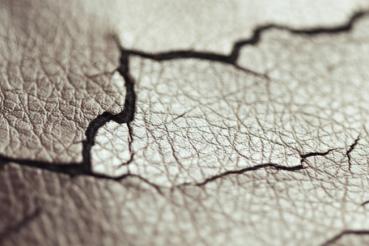Not sure if that spot on your skin is something to worry about? Then it might be time for a skin check, otherwise known as a skin cancer screening.
“Skin checks can help detect and diagnose skin cancer as early as possible,” says David C. Reid, MD, chief of dermatology at Rush University Medical Center. “And we know that the earlier we can detect and diagnose skin cancer, the better the prognosis is for the skin cancer and the better the outcome is for the patient.”
Reid recommends people who have had skin cancer get regular skin checks, usually every three to six months or so for a year or more after their diagnosis. “If you have a history of skin cancer, you’re at a much higher risk for having a future skin cancer,” Reid says.
Even if you have never had skin cancer, getting a skin check is a good idea if you:
- Have a family history of melanoma, the most serious type of skin cancer
- Have had sunburns, particularly during childhood and adolescence
- Work outside or frequently engage in outdoor activities like golfing, running or skiing, which can damage skin over time
- Have a lot of moles
- Take medicines for autoimmune conditions or after an organ transplant
- Have light skin or light hair
Even though people with lighter skin have a higher risk for getting skin cancer, people of color are also at risk. “In particular, Black patients can develop skin cancer more commonly on the hands, feet and nails,” Reid says. So, if you have darker skin and notice something different about your skin, you should get it checked, he advises.
Whatever your skin tone, getting screened for skin cancer in your 40s or 50s can also help establish a baseline, so your doctor can make recommendations on how often you might need to be screened in the future.
What to expect during a skin check
To prepare for a skin cancer screening, it’s best to skip the makeup and nail polish. “Skin cancer can even show up as a streak in the nail,” Reid says.
At the doctor’s office, you will be asked to remove all your clothing and put on a robe, although you may choose to keep your underwear on. Your doctor will check you from head to toe, including hidden areas, like your underarms, between your fingers and the bottoms of your feet. “That’s because skin cancer can occur anywhere on the body,” Reid says. “One of the benefits of coming in for a screening exam is that we can look at areas that might not be easy to see for yourself, such as your scalp or back.”
Your doctor will look for suspicious spots that have an atypical color or size, or an irregular border or texture. Your provider will also use a noninvasive, handheld tool called a dermatoscope to “see through” your skin. This can help your doctor visualize features and patterns under a lesion that might suggest skin cancer.
Your doctor may also take photos and measure any moles or spots. If a lesion requires closer examination, you may need a biopsy, which involves taking a small tissue sample and sending it to the lab. Most of the time, biopsies only take a few minutes and can be taken when you come in for a screening.
Prevention matters
During the exam, your doctor can also provide sun protection counseling specific for your needs.
For general tips to help prevent skin cancer, Reid offers the following advice:
- Use sunscreen year-round, even during the winter months. Choose one with an SPF of 30 or more.
- Avoid being outside during the midday hours when the sun is strongest.
- Wear wide-brimmed hats and other protective clothing when outdoors for extended periods of time.
A quick, reassuring test
A skin check only takes 10 to 15 minutes and can offer peace of mind for many people.
“Overall, skin checks can provide a lot of reassurance to patients,” Reid says.
Besides having your dermatologist check your skin, you should keep an eye out for anything new or different on your skin. This might include spots that itch, bleed or change in size, shape or color.
Several professional groups recommend doing a monthly self-check. A good time to check your skin is before or after you bathe, or at bedtime.
“If you find a spot that is new, changing or otherwise concerns you, make an appointment with your doctor and be sure to point it out during your exam,” Reid suggests.
Ready to schedule a skin cancer screening? Our experts are here to help.




